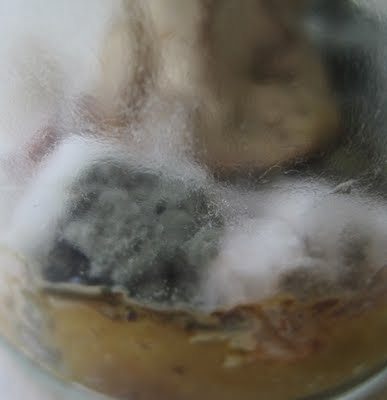The stimulus: a garbage can by Lake Merritt in Oakland, California, overflowing with plastic bags.
Note, as we come in for a close-up, an illuminated message glowing on a discarded coffee cup inside the bin, created by: a) letters cut out of the metal container; b) sunlight; and c) the fact that someone put a paper cup in the can section of the bin, creating a perfect screen for the illuminated letters.
Whatever mishaps contributed to this transmission, it is clearly a message from on-high. In fact, it is so very cool that we move in for an even closer shot.
Message received, we move into action, collecting assorted colorful plastic bags and ironing them together to create 8-ply sheets of fused plastic, suitable for sewing into just about anything (if you can put up with the stiff texture and multiple needle pricks). There are many good instructions for how to fuse plastic bags on the Web. Try this one from
Etsy on YouTube.
Now we have any number of beautiful sheets of fused plastic material at our disposal. What to make, what to make?
The decision was easy—a recycled, fused plastic raincoat, hat, and boots for Barbie, who is herself entirely made of plastic and will be here long after we are gone, maybe even longer than the
Venus of Willendorf. There is no better spokesperson for the uber-plastic world we have created.
 |
| Eco Barbie, decked out in fused plastic rain gear amidst a plastic landscape. |
 |
| Eco Barbie tries to run from the problem but she can't run away from herself. |
 |
| Eco Barbie realizes that before she can solve the problem, she must come to terms with the fact that, being plastic herself, she is the problem. |
Note that all art pieces I have ever made using a Barbie doll (such as the
Wonder Barbies) always recycle the same Barbie doll. Because there is no good way to throw her away, I will keep her until I am dead and will then will her to my oldest grandniece and so on through the generations until the end of time.










































